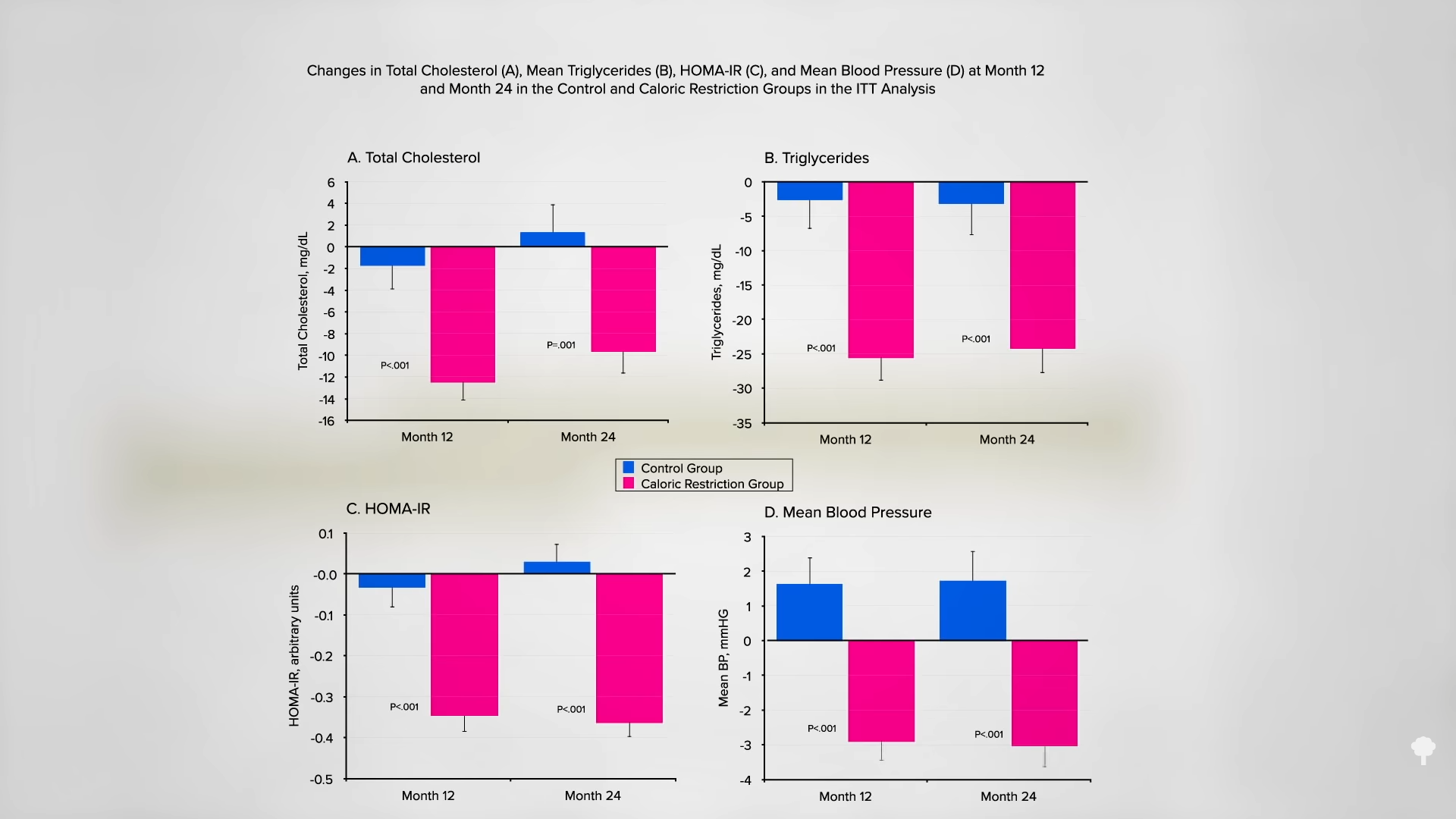[ad_1]
Though a bane for dieters, a slower metabolism may actually be a good thing.
We’ve known for more than a century that calorie restriction can increase the lifespan of animals, and metabolic slowdown may be the mechanism. That could be why the tortoise lives ten times longer than the hare. Rabbits can live for 10 to 20 years, whereas “Harriet,” a tortoise “allegedly collected from the Galapagos Islands by Charles Darwin, was estimated to be about 176 years old when she died in 2006.” Slow and steady may win the race.
As I discuss in my video The Benefits of Calorie Restriction for Longevity, one of the ways our body lowers our resting metabolic rate is by creating cleaner-burning, more efficient mitochondria, the power plants that fuel our cells. It’s like our body passes its own fuel-efficiency standards. These new mitochondria create the same energy with less oxygen and produce less free radical “exhaust.” After all, when our body is afraid famine is afoot, it tries to conserve as much energy as it can.
Indeed, the largest caloric restriction trial to date found metabolic slowing and a reduction in free radical-induced oxidative stress, both of which may slow the rate of aging. The flame that burns twice as bright burns half as long. But, whether this results in greater human longevity is an unanswered question. Caloric restriction is often said “to extend lifespan in every species studied,” but that isn’t even true of all strains within a single species. Two authors of one article, for instance, don’t even share the same view: One doesn’t think calorie restriction will improve human longevity at all, while the other suggests that a 20 percent calorie restriction starting at age 25 and sustained for 52 years could add five years onto your life. Either way, the reduced oxidative stress would be expected to improve our healthspan.
Members of the Calorie Restriction Society, self-styled CRONies (for Calorie-Restricted Optimal Nutrition), appear to be in excellent health, but they’re a rather unique, self-selected group of individuals. You don’t really know until you put it to the test. Enter the CALERIE study, the Comprehensive Assessment of Long-Term Effects of Reducing Intake of Energy, the first clinical trial to test the effects of caloric restriction.
Hundreds of non-obese men and women were randomized to two years of 25 percent calorie restriction. They only ended up achieving half that, yet they still lost about 18 pounds and three inches off their waists, wiping out more than half of their visceral abdominal fat, as you can see in the graph below and at 2:47 in my video.

That translated into significant improvements in cholesterol levels, triglycerides, insulin sensitivity, and blood pressure, which you can see in the graph below and at 2:52 in my video. Eighty percent of those who were overweight when they started were normal-weight by the end of the trial, “compared with a 27% increase in those who became overweight in the control group.” 
In the famous Minnesota Starvation Study that used conscientious objectors as guinea pigs during World War II, the study subjects suffered both physically and psychologically, experiencing depression, irritability, and loss of libido, among other symptoms. The participants started out lean, though, and had their calorie intake cut in half. The CALERIE study ended up being four times less restrictive, only about 12 percent below baseline calorie intake, and enrolled normal-weight individuals, which in the United States these days means overweight on average. As such, the CALERIE trial subjects experienced nothing but positive quality-of-life benefits, with significant improvements in mood, general health, sex drive, and sleep. They only ended up eating about 300 fewer calories a day than they had eaten at baseline. So, they got all of these benefits—the physiological benefits and the psychological benefits—just from cutting about a small bag of chips’ worth of calories from their daily diets.
What happened at the end of the trial, though? As researchers saw in the Minnesota Starvation Study and in calorie deprivation experiments done on Army Rangers, as soon as the subjects were released from restriction, they tended to rapidly regain the weight and sometimes even more, as you can see below and at 4:18 in my video.

The leaner they started out, the more their bodies seemed to drive them to overeat to pack back on the extra body fat, as seen in the graph below and at 4:27 in my video. In contrast, after the completion of the CALERIE study, even though their metabolism was slowed, the participants retained about 50 percent of the weight loss two years later. They must have acquired new eating attitudes and behaviors that allowed them to keep their weight down. After extended calorie restriction, for example, cravings for sugary, fatty, and junky foods may actually go down. 
This is part of my series on calorie restriction, intermittent fasting, and time-restricted eating. See related videos below.
[ad_2]


2 Comments
Can you be more specific about the content of your article? After reading it, I still have some doubts. Hope you can help me.
Can you be more specific about the content of your article? After reading it, I still have some doubts. Hope you can help me.